REDUCING SEASONAL ALLERGIES IN Huntsville
Whereas it’s simple for some of us to enjoy the summertime, there are many people that suffer from recurrent allergies. Did you know that turf and the weeds that spread in the turf are one of the biggest contributors to allergies?
According to the American Academy of Allergy Asthma & Immunology, allergic reactions to grasses is very common. Turf allergies might show in multiple manners, counting nasal symptoms (runny nose, stuffiness, sneezing, asthma, and eye symptoms (itchy, watery/red eyes). A lot of persons might furthermore have skin reactions (hives or skin welts) after exposure to grasses, though this is considerably less common. Grass allergies are extensive due to the fact that turf pollen scatters in the breeze, which is contrary to the pollen that travels by insects, so you are more likely to breathe it in and thus show symptoms. In most zones of the United States, including Huntsville, grass often pollinates in the late spring season (April through early June).
If you’re one of the millions troubled by recurrent allergies, artificial turf will help alleviate most of your symptoms without the requirement of medications. Dip in to discover more.
DOES ARTIFICIAL GRASS GET RID OF ALLERGIES?
Well, it depends. Not everybody is allergic to solely grass. Part of them are allergic to the pollen that trees and herbs produce, too. The predominant frequent allergy to turf is denominated hay fever. If you’ve become ill with hay fever before, you know just how miserable it is. It might be hard to evade turf allergens completely, but you can certainly reduce your vulnerability by eliminating the natural grass on your property.
When you convert your natural turf garden to artificial turf, the pollen count will be notably reduced. While there will yet be pollen in the vicinity from trees and herbs, grass pollen generation will be stopped in your proximate environs.
WILL ARTIFICIAL GRASS HELP MY DOG’S ALLERGIES?
Does your dog is afflicted with allergies, too? It’s becoming more usual for dogs to be afflicted by pollen allergies nowadays. They will develop the same symptoms you might experience, like sternutation and watery eyes. Allergy pharmaceuticals can make your dog drowsy, so they won’t act like themselves as the pollen count is elevated.
It’s a common misunderstanding that you can’t acquire artificial grass if you possess dogs. But, we’re here to prove to you that isn’t correct If you own dogs, you can buy pet-specific turf that is built just for your pet. Artificial turf for dogs will give you the finest effectiveness for high traffic areas and is made with a unique backing system so liquid fluids can flow through rapidly. Solid waste is a breeze to do, as well — only let it dry before getting rid of it and scatter with a hose for anything that may be left behind.
WHAT ADDITIONAL UPSIDES ARE THERE TO ARTIFICIAL TURF?
Low Maintenance: Synthetic grass doesn’t require the same extent of service that natural turf does. You won’t have to cut, downsize, feed, or irrigate. This helps to end allergies and other respiratory illnesses in their paths because there’s no ground dust or floating contaminants from the grass itself.
Long-Lasting: When you get excellent artificial grass, you can count on it to be durable. At Southwest Greens, we produce our grass with the most cutting-edge materials in the market. It’s UV-resistant and created to deal with heavy use, extreme weather, and temperature variations. So irrespective if it’s spring, summer, fall, or winter, your turf will always be grassy and well-preserved.
Saves Water: With water scarcity turning continuously more a notable trouble for arid regions, artificial turf is a great choice to reduce your water consumption. Did you know that almost ⅓ of all housing water expenditure (which totals near 9 billion gallons everyday) is used for landscape soaking? So if you’re done with watering your garden and paying elevated sums of money to get it done, artificial grass is the perfect solution.
Reduces Pollution: Artificial turf doesn’t demand the same abrasive chemicals that traditional turf requires to look its verdant. Therefore, it removes the demand for herbicides and pesticides, which means you and your nearest and dearest (dogs included) won’t be susceptible to as many unhealthy substances. Furthermore, you won’t have to fear those components flowing towards water systems in the time of severe rains.
DOES SYNTHETIC TURF GET HOT?
It’sa recurrent knowledge that artificial grass can get hot, particularly in the summer when the sun is shining all day. That’s why we’ve made HydroChill®. This original technology is integrated with the turf infill to bring an average temperature reduction of 30°-50°. It works similarly to how transpiration cools us. HydroChill® maintains moisture from precipitations or a quick spray from the hose to put into action the effects of evaporation to remove|high temperature naturally.
This technology provides maximum value when the sun is closest to the Earth, as shown in the solar radiation timeline. The rotation of the Earth is additionally the cause of hourly changes in sunlight, therefore making HydroChill® more effective throughout the hotter part of a clear day when most required.
